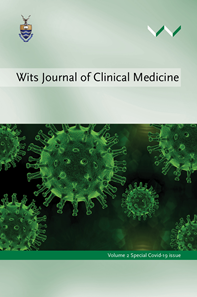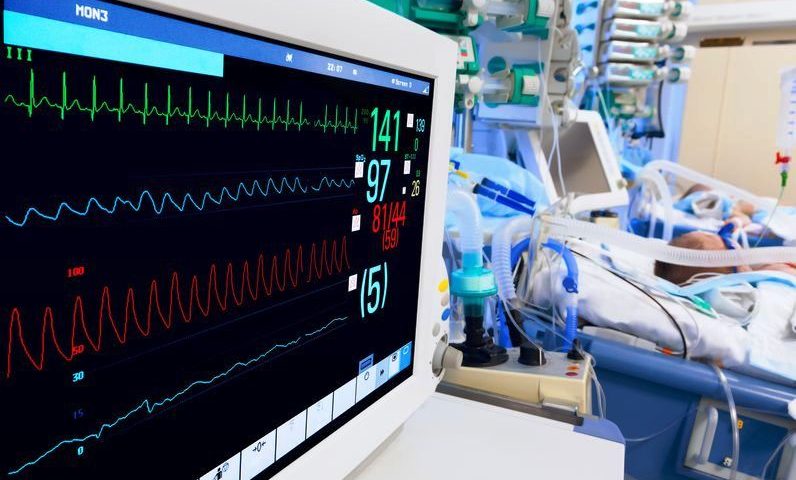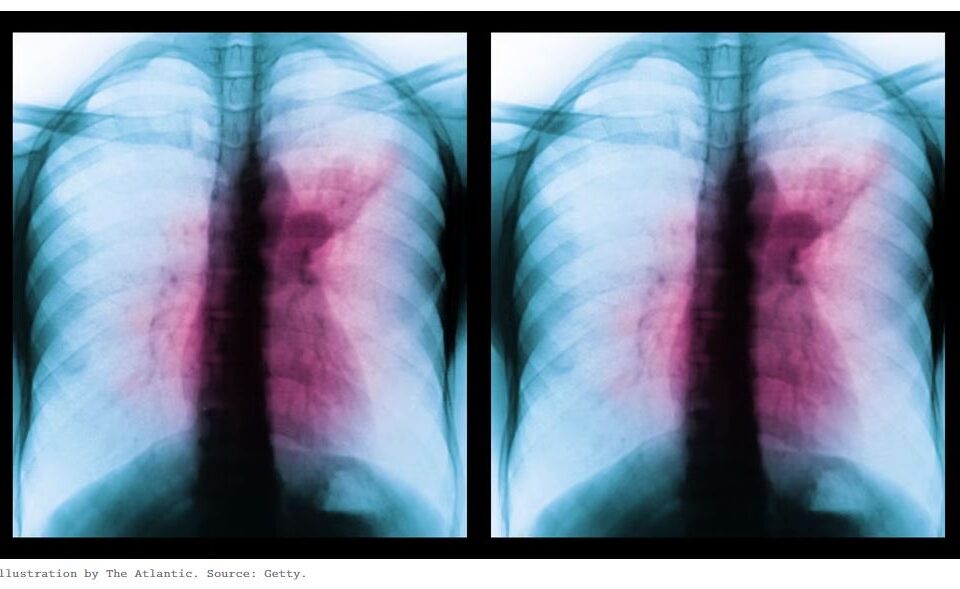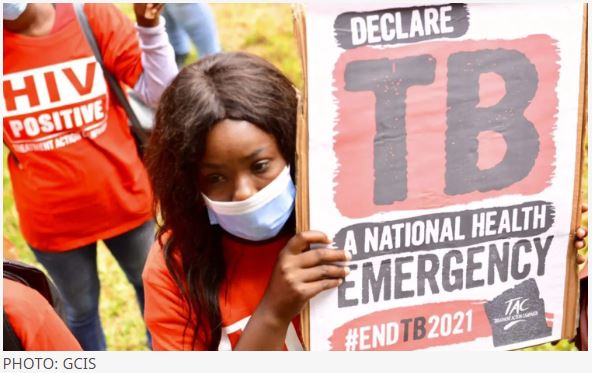


Diagnosis of COVID-19: Considerations, Controversies and Challenges in South Africa
23rd April 2020


COVID-19: Considerations, controversies and challenges in South Africa
6th May 2020TIMES Select | 05 May 2020 | Tanya Farber
Doctors across the globe are not only grappling with the life-and-death question of who gets a ventilator.
Now, they’re having to take on a whole new urgent dilemma: Over the past few days worrying statistics from different countries show that as many as 30% of Covid-19 patients have an abnormal type of blood clot in their bodies but that normal blood-thinning agents could be dangerous.
This has raised an urgent question about the medications normally given to help avert a clot: if the dose is too low, the patient could easily die from the clot. If it’s too high, there’s a risk of fatal internal bleeding (in the stomach), or a stroke.
Prof Keertan Dheda, head of The Lung Institute at UCT, told Times Select: “Over the past few days some very interesting studies have come to light regarding blood clots and Covid-19.
“There is an increased risk of blood clots with several types of pneumonia, including due to tuberculosis, influenza and bacterial pneumonia. However, there is now good evidence that there is a much higher rate of blood-clot formation in patients with Covid‑19 (average of 30%), which is much higher than seen with other types of pneumonia.”
Now, they’re having to take on a whole new urgent dilemma: Over the past few days worrying statistics from different countries show that as many as 30% of Covid-19 patients have an abnormal type of blood clot in their bodies but that normal blood-thinning agents could be dangerous.
This has raised an urgent question about the medications normally given to help avert a clot: if the dose is too low, the patient could easily die from the clot. If it’s too high, there’s a risk of fatal internal bleeding (in the stomach), or a stroke.
Prof Keertan Dheda, head of The Lung Institute at UCT, told Times Select: “Over the past few days some very interesting studies have come to light regarding blood clots and Covid-19.
“There is an increased risk of blood clots with several types of pneumonia, including due to tuberculosis, influenza and bacterial pneumonia. However, there is now good evidence that there is a much higher rate of blood-clot formation in patients with Covid‑19 (average of 30%), which is much higher than seen with other types of pneumonia.”


The chaos of Covid-19 While pneumonia is killing many Covid-19 patients, so are blood clots, leaving doctors with more questions than answers regarding the way forward. Image: 123RF/Andrey Malov
Blood clots had not only been seen “clinically” (in the veins of the legs, abdomen, lungs, and some arteries) but had also been “verified in post-mortem studies”, which had shown clots not only in the large blood vessels but also in the small blood vessels of the skin and the lungs.
“This is a field of intensive research and we don’t understand it very well,” Dheda said.
He believes it could be that Covid-19 is injuring the cells that line blood vessels.
This causes a hyperinflammatory state and, coupled with the fact that the patient is lying immobile in a bed, could be causing excessive clots to form in the veins and sometimes arteries too.
Covid-19 patients were routinely treated with clot-prevention injections to thin the blood, but too small a dose might not do the trick, while too high a dose “may result in dangerous bleeding complications”.
At the same time this was “treating the effect rather than the underlying cause”.
The new data on blood clots compounds the well-established fact that most Covid-19 patients are dying from pneumonia, as their lungs no longer have the capacity to draw enough breath.
“This is a field of intensive research and we don’t understand it very well,” Dheda said.
He believes it could be that Covid-19 is injuring the cells that line blood vessels.
This causes a hyperinflammatory state and, coupled with the fact that the patient is lying immobile in a bed, could be causing excessive clots to form in the veins and sometimes arteries too.
Covid-19 patients were routinely treated with clot-prevention injections to thin the blood, but too small a dose might not do the trick, while too high a dose “may result in dangerous bleeding complications”.
At the same time this was “treating the effect rather than the underlying cause”.
The new data on blood clots compounds the well-established fact that most Covid-19 patients are dying from pneumonia, as their lungs no longer have the capacity to draw enough breath.
Prof Elvis Irusen is the head of pulmonology at Stellenbosch University.
He told Times Select that pneumonia is the “commonest cause of death with Covid-19 patients” but that all infections, especially coronavirus, “also activate the clotting system of the blood” and this can cause “both bleeding and a blood clot (thrombus)”.
Previous studies had shown that patients with swine flu, and other “very sick patients with severe viral pneumonia and acute respiratory distress syndrome” who had been admitted to hospitals, were shown to have a 23-times increased risk for pulmonary embolism (when a blood clot from elsewhere in your body, like a vein in your leg, travels and lodges itself in the lung).
“This could be similar to the current coronavirus,” he said, adding that this complication is “well publicised” and that “doctors are measuring this in SA”.
The other issue is that comorbidities that place one at a higher risk for Covid-19 (such as diabetes and heart problems) also increase the risk of pulmonary embolism.
He told Times Select that pneumonia is the “commonest cause of death with Covid-19 patients” but that all infections, especially coronavirus, “also activate the clotting system of the blood” and this can cause “both bleeding and a blood clot (thrombus)”.
Previous studies had shown that patients with swine flu, and other “very sick patients with severe viral pneumonia and acute respiratory distress syndrome” who had been admitted to hospitals, were shown to have a 23-times increased risk for pulmonary embolism (when a blood clot from elsewhere in your body, like a vein in your leg, travels and lodges itself in the lung).
“This could be similar to the current coronavirus,” he said, adding that this complication is “well publicised” and that “doctors are measuring this in SA”.
The other issue is that comorbidities that place one at a higher risk for Covid-19 (such as diabetes and heart problems) also increase the risk of pulmonary embolism.


Keeping up Front-line health workers have to stay abreast of the latest research. Image: Supplied
“Patients in the ICU get routine treatment to ‘thin’ the blood, and what is being researched is whether we should give higher doses.”
Irusen said “we will get a better idea in time of the precise incidence of lung thrombosis”, but that right now there was limited data “possibly due to the very high risk that an autopsy carries of infecting doctors”.
https://select.timeslive.co.za/news/2020-05-05-what-causes-creepy-covid-19-blood-clots/
Irusen said “we will get a better idea in time of the precise incidence of lung thrombosis”, but that right now there was limited data “possibly due to the very high risk that an autopsy carries of infecting doctors”.
https://select.timeslive.co.za/news/2020-05-05-what-causes-creepy-covid-19-blood-clots/




